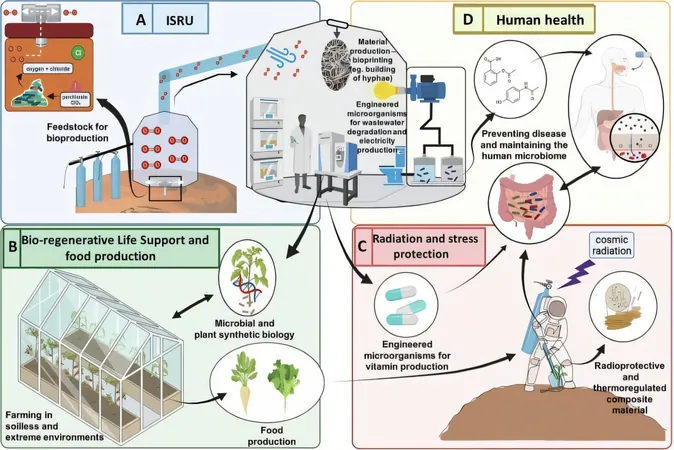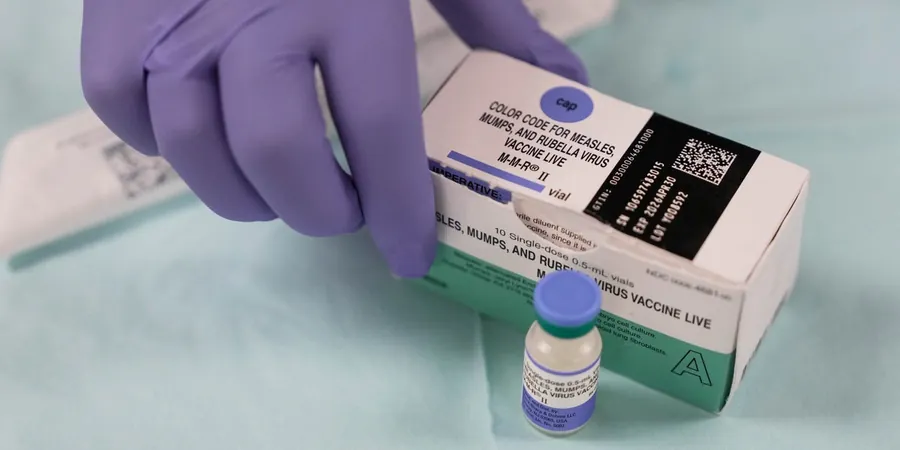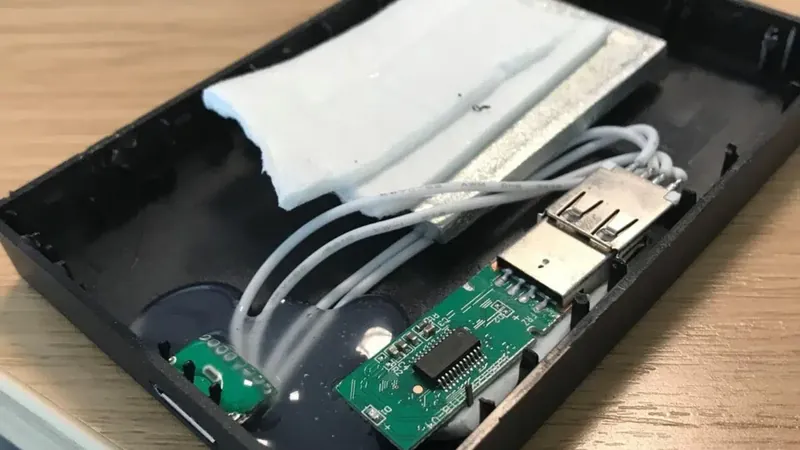
Revolutionizing Space Health: How Synthetic Biology Could Ensure Astronaut Survival on Moon and Mars
2025-07-15
Author: William
A New Frontier in Space Exploration
As humanity gears up for ambitious missions to the Moon and Mars, ensuring the health of astronauts is just as crucial as designing the spacecraft or living quarters. A groundbreaking study featured in npj Microgravity delves into the role of synthetic biology in safeguarding astronaut health in these alien environments.
The Perils of Space: A Unique Challenge
In the unforgiving realm of space, our bodies face unprecedented trials that Earth never prepared us for. Astronauts are subjected to isolation, microgravity, and harmful radiation—all of which can wreak havoc on the immune system, elevating the risk of infections, chronic inflammation, and other ailments. Recent insights from HIV research are starting to shed light on how to maintain astronaut health and manage resources sustainably out there.
Inflammasomes: The Immune System's Double-Edged Sword
At the crux of this research lies the inflammasome, a miniature yet potent protein within immune cells. This 'alarm system' detects viral threats, cellular stress, or damage, triggering a swift inflammatory response with molecules like interleukin-1β and interleukin-18. However, when inflammation lingers, it can weaken the body instead of protecting it.
In the context of HIV infections, scientists have noted that inflammasomes have a dual nature. Initially, they bolster the immune response against the virus, but if not controlled, they contribute to chronic inflammation that damages healthy cells and accelerates the aging process. This knowledge is vital for the challenges of space travel, where unchecked inflammation could silently jeopardize astronaut health during lengthy missions.
Balancing the Body's Defense Mechanism
Understanding how to regulate inflammasome activity presents a golden opportunity for space missions. By practicing effective inflammation management, astronauts could recuperate from injuries more rapidly and enhance their infection resistance, potentially reducing their reliance on Earth-bound supplies. This approach aligns with the vision of self-sustaining habitats that recycle food, water, and medical resources onboard.
Shielding Against Cosmic Radiation
Moreover, controlling inflammation plays a critical role in shielding tissues from cosmic radiation, which damages DNA and stresses cells, often pushing inflammasomes into hyperdrive. A safe method for dampening this excessive inflammatory response could greatly facilitate the body's self-repair mechanisms.
From Lab to Lifesaver: Custom Medicine in Space
Perhaps the most exciting prospect is the potential for astronauts to craft personalized medications as needed. By mastering the ability to activate or deactivate inflammasome pathways at crucial moments, future missions could harness onboard bioreactors or 3D bioprinters to produce bespoke treatments—a far cry from transporting an entire pharmacy into space.
Explored in the cutting-edge npj Microgravity paper led by researcher Silvano Onofri, these innovations could revolutionize health management in outer space.
The Future of Space Health Management
As we venture into the cosmos, controlling the body's internal 'fire' may prove essential—almost as crucial as oxygen and food supply systems. By unraveling the secrets of inflammation taught by HIV research, we could equip future space explorers with the tools to survive, adapt, and flourish in the vast unknown of the universe.









 Brasil (PT)
Brasil (PT)
 Canada (EN)
Canada (EN)
 Chile (ES)
Chile (ES)
 Česko (CS)
Česko (CS)
 대한민국 (KO)
대한민국 (KO)
 España (ES)
España (ES)
 France (FR)
France (FR)
 Hong Kong (EN)
Hong Kong (EN)
 Italia (IT)
Italia (IT)
 日本 (JA)
日本 (JA)
 Magyarország (HU)
Magyarország (HU)
 Norge (NO)
Norge (NO)
 Polska (PL)
Polska (PL)
 Schweiz (DE)
Schweiz (DE)
 Singapore (EN)
Singapore (EN)
 Sverige (SV)
Sverige (SV)
 Suomi (FI)
Suomi (FI)
 Türkiye (TR)
Türkiye (TR)
 الإمارات العربية المتحدة (AR)
الإمارات العربية المتحدة (AR)